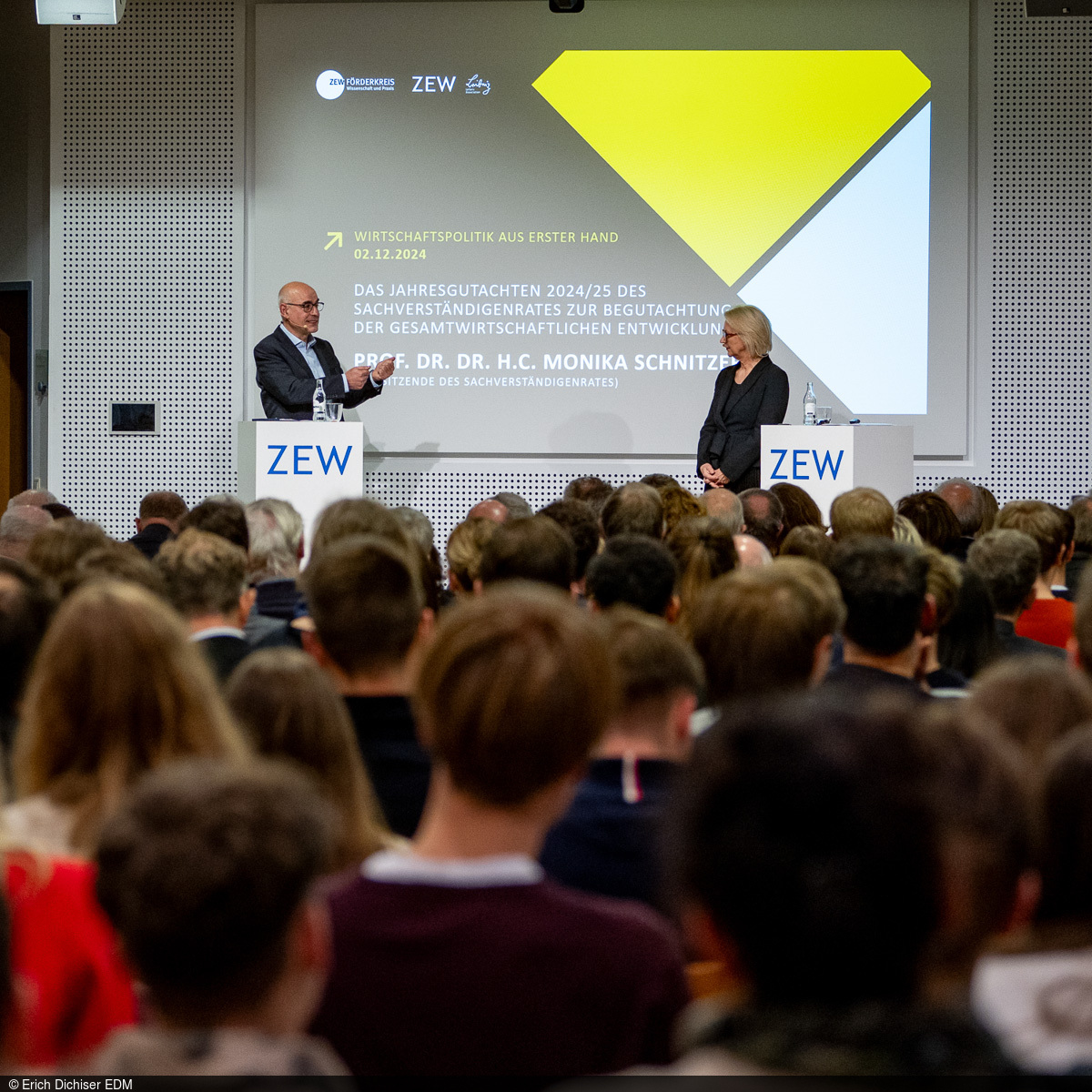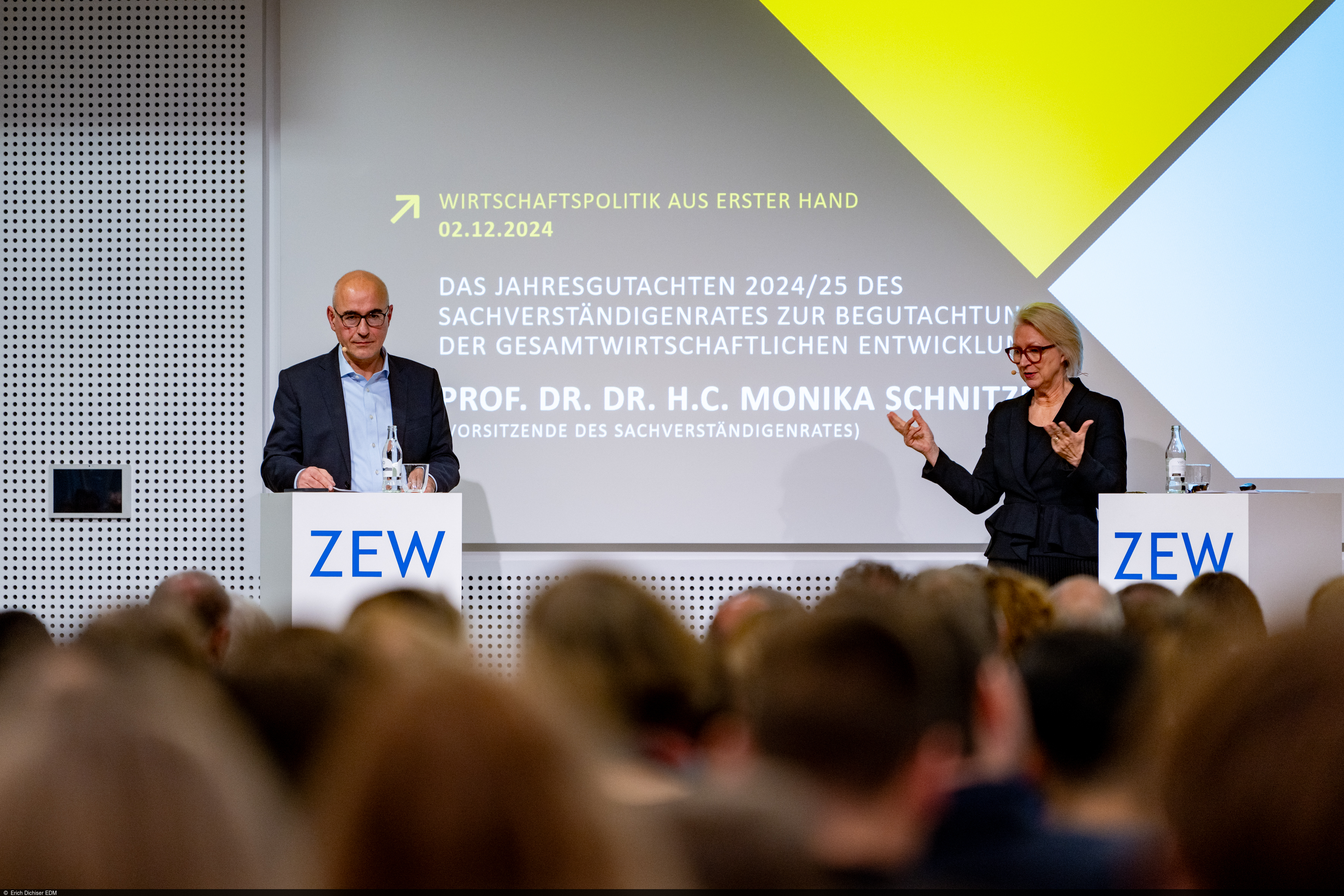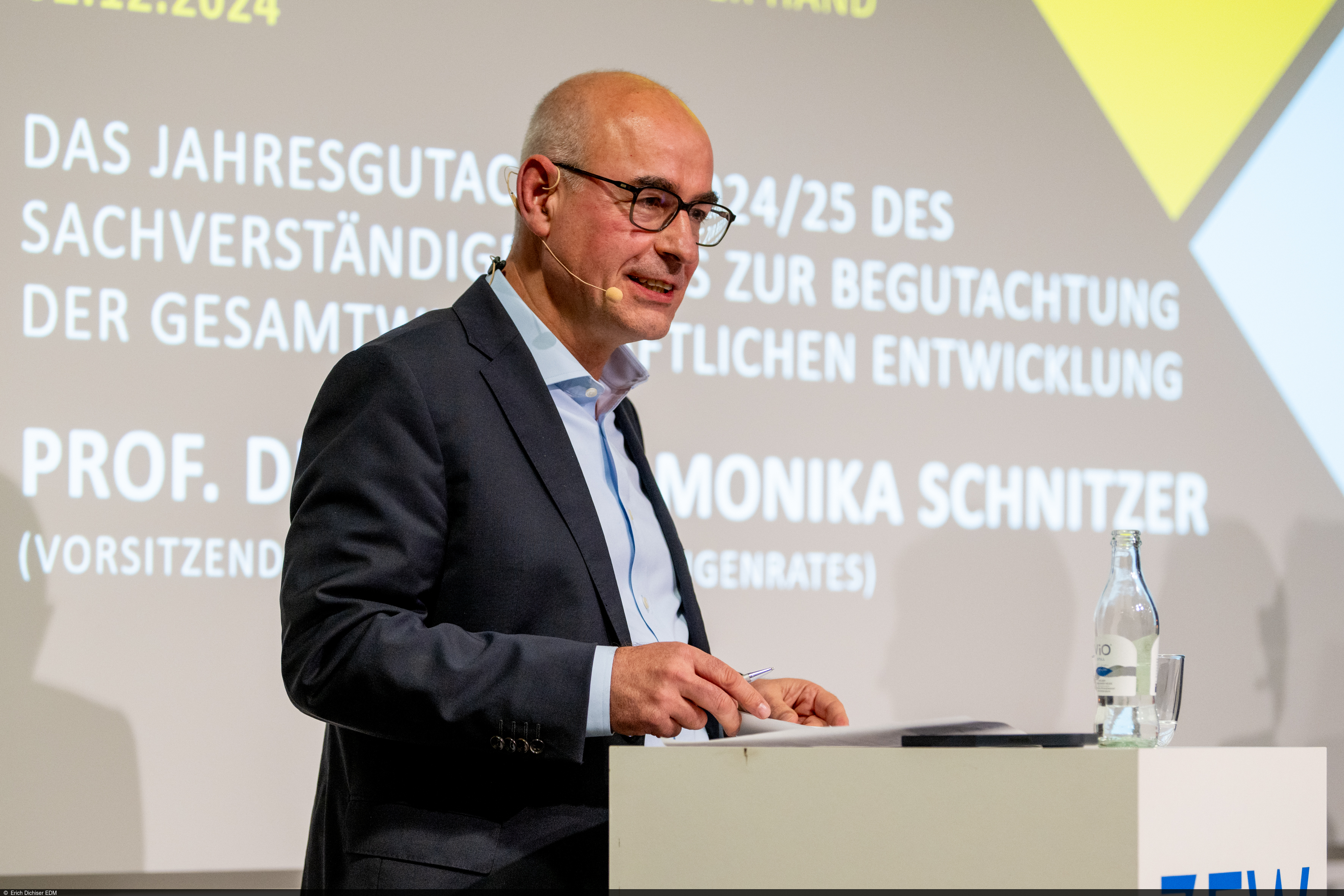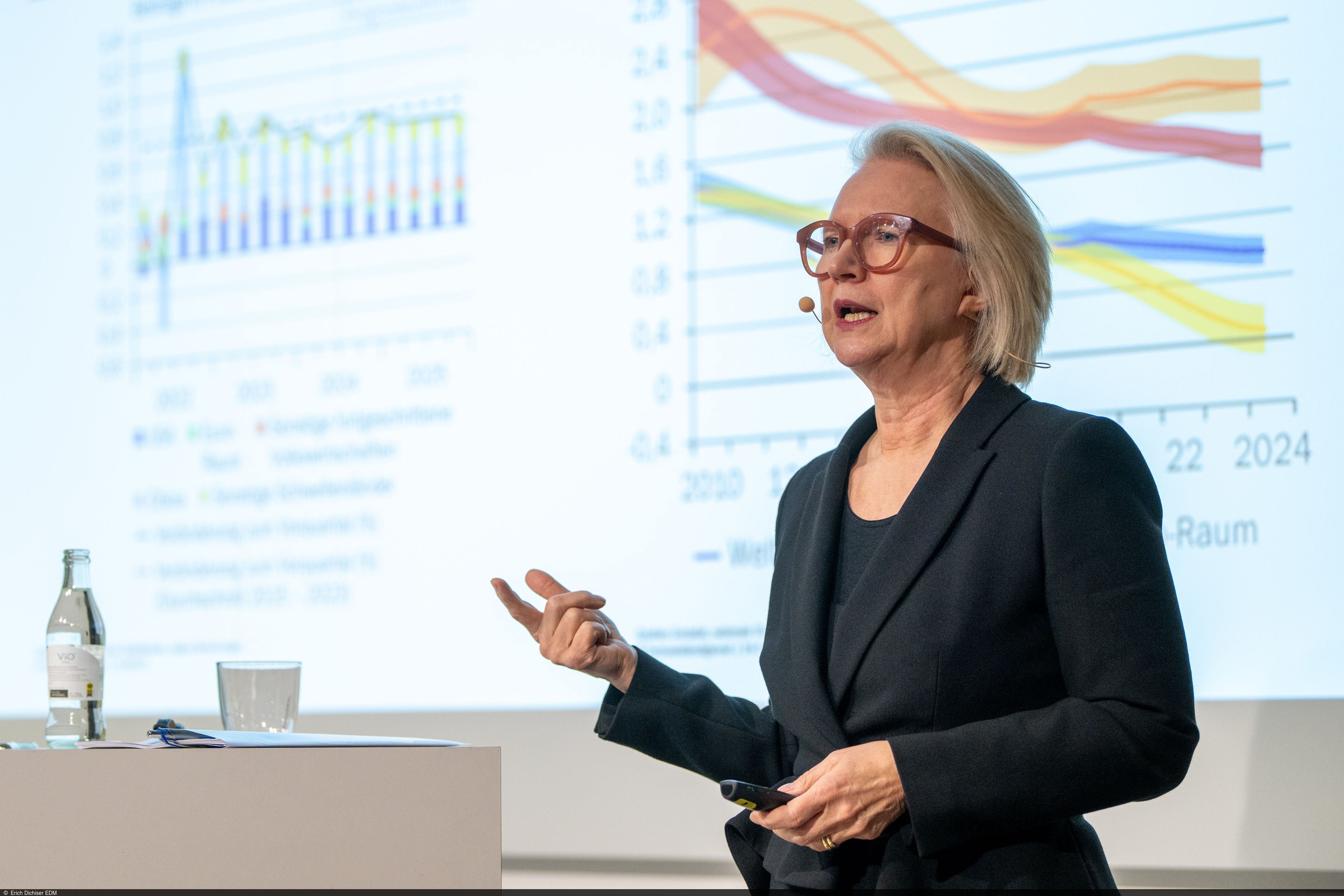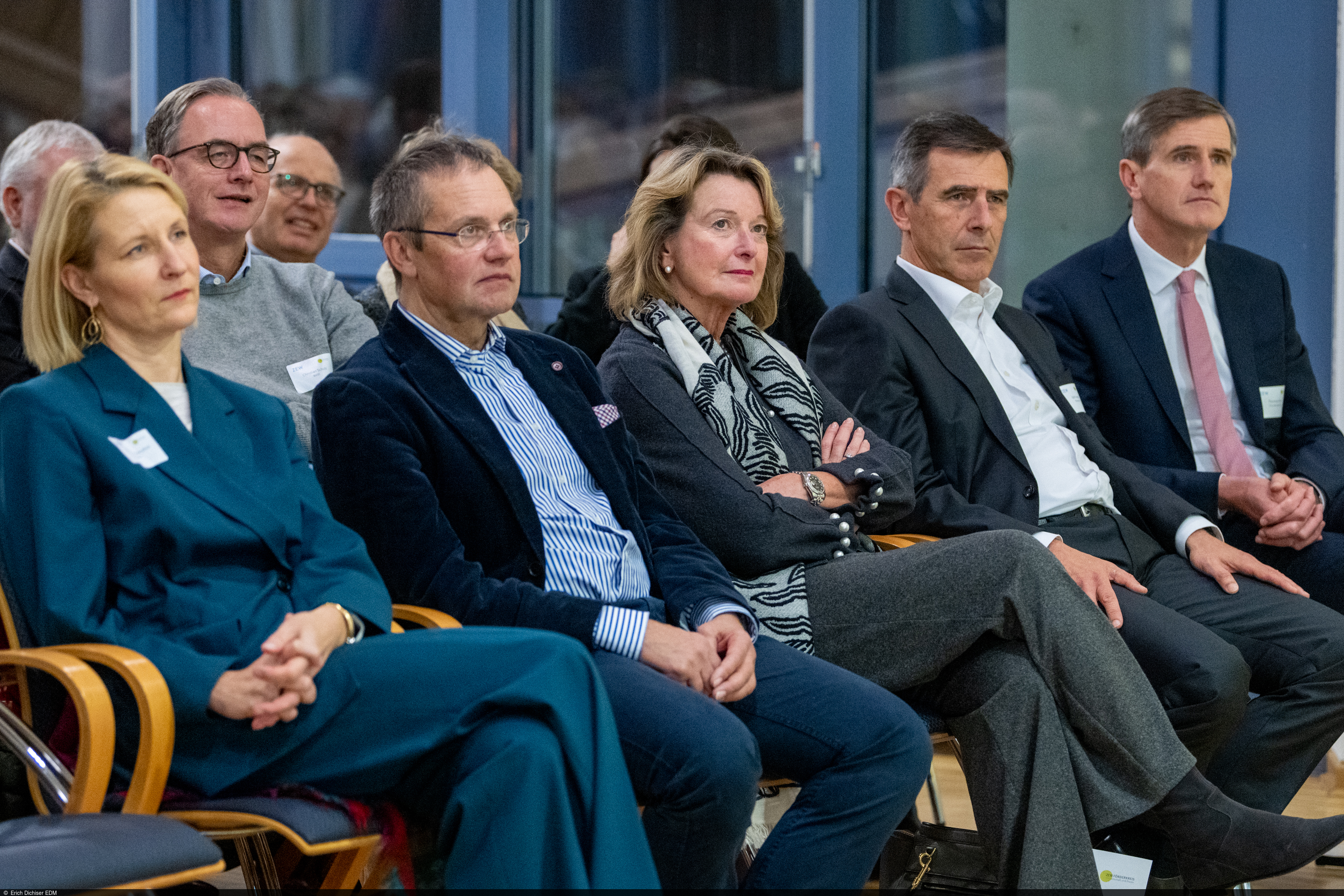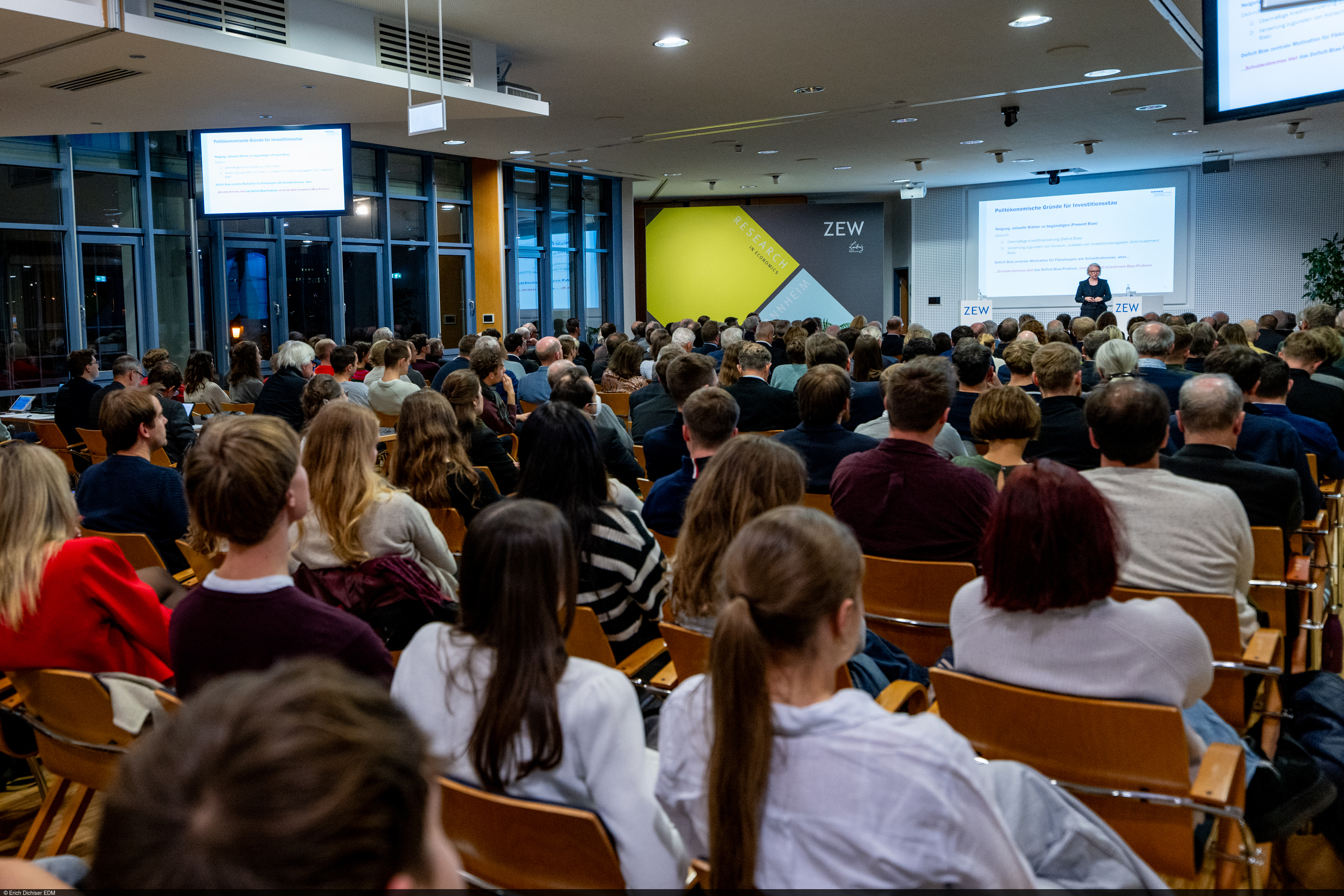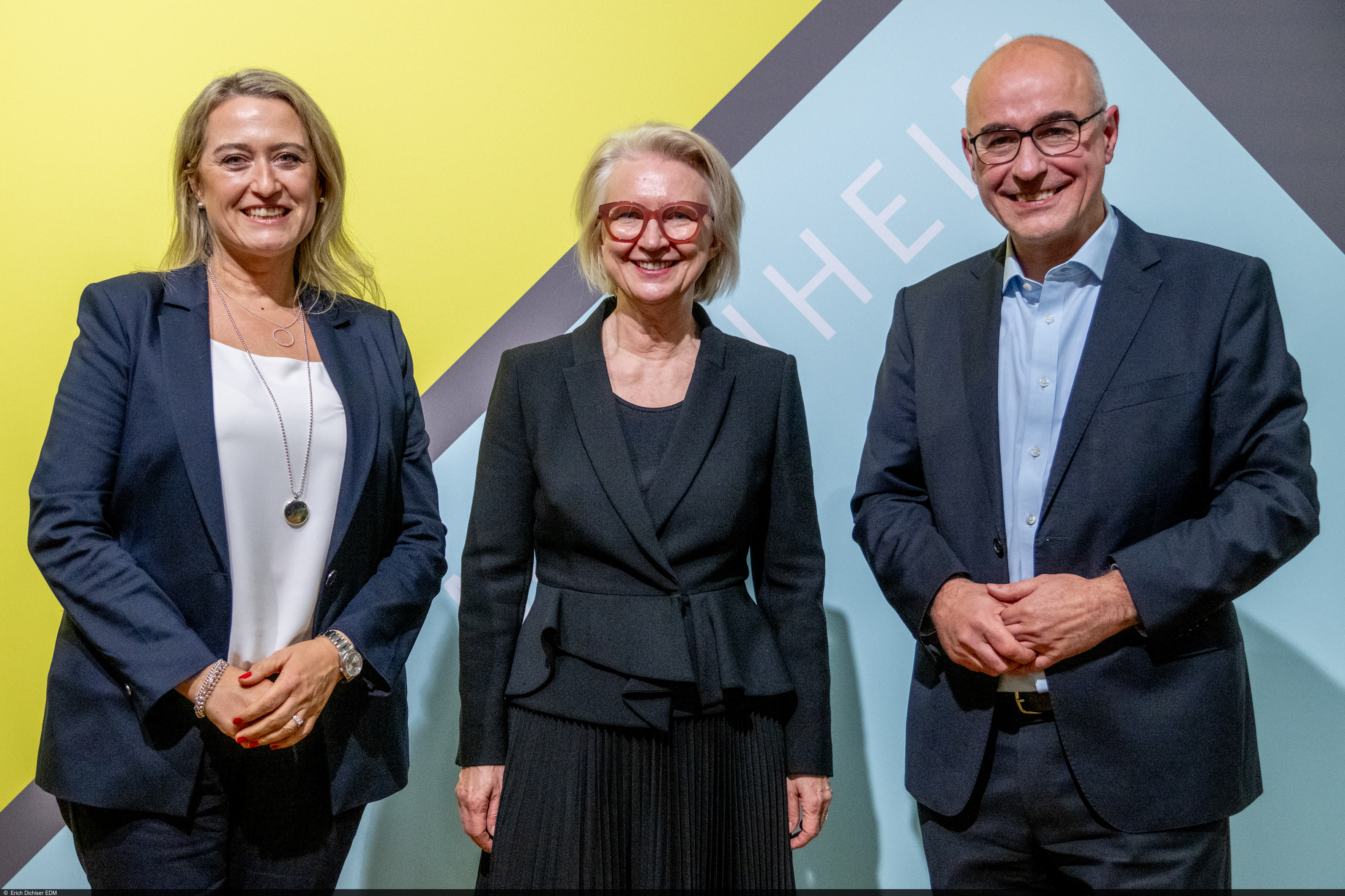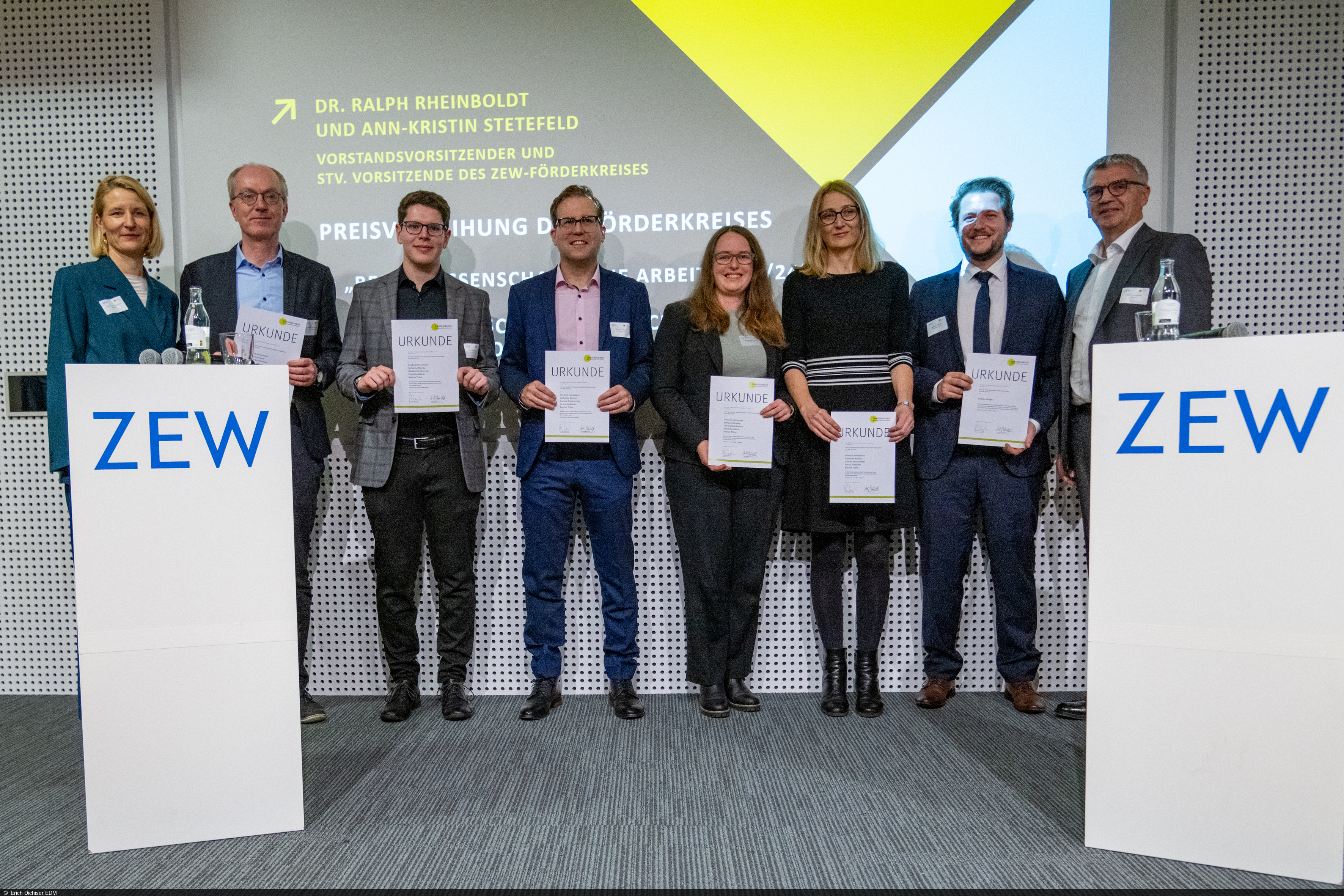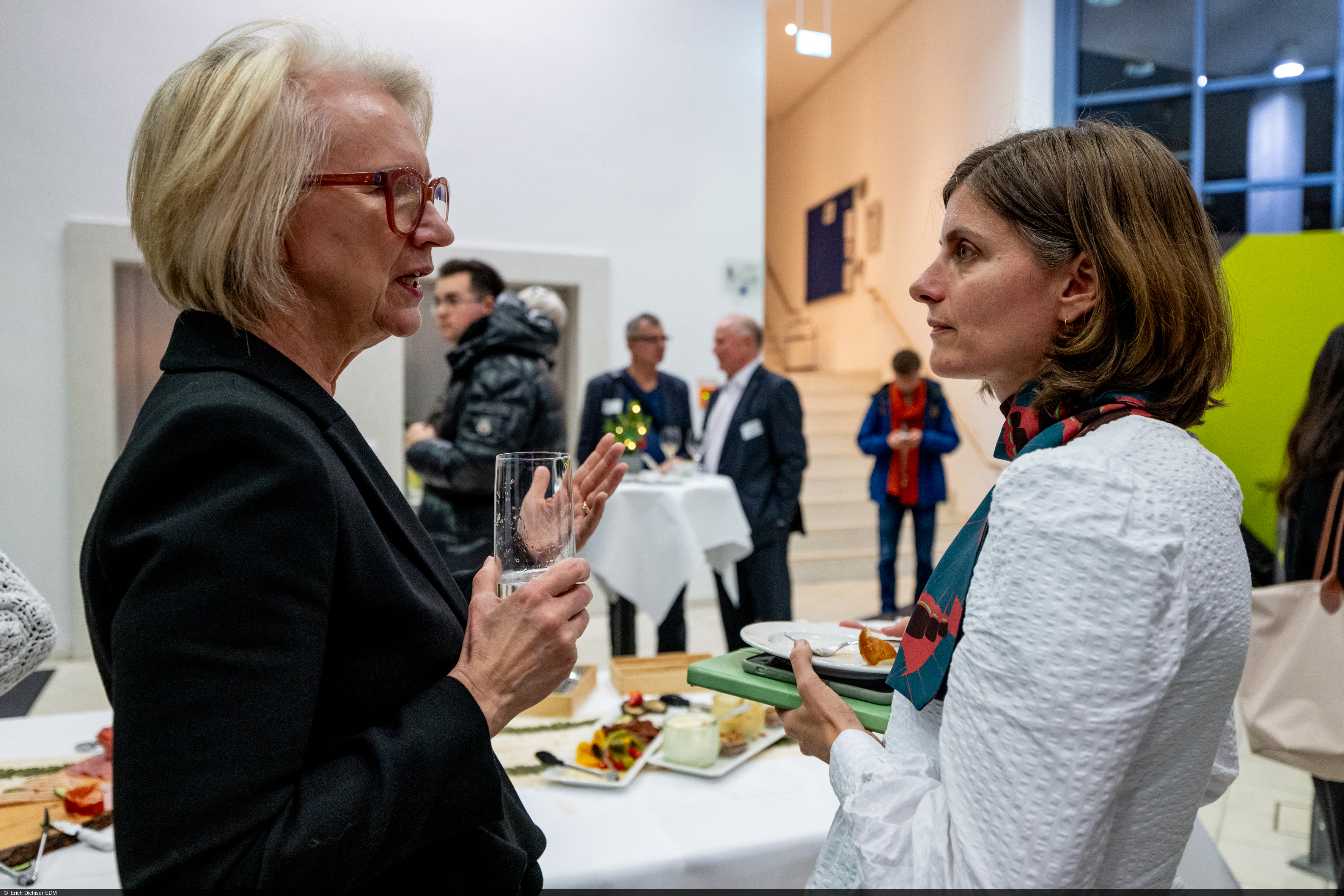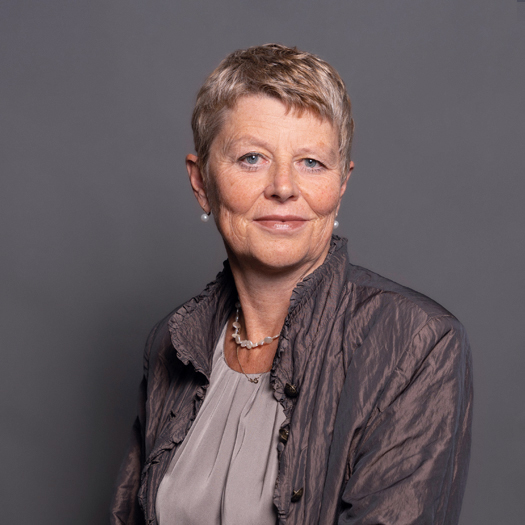Addressing Shortfalls, Modernising Resolutely
EventsChairwoman of the Council of Economic Experts Presents Annual Report at ZEW
The German economy has been stagnating for five years – and looking ahead to the coming years gives little reason for optimism. In its annual report, the German Council of Economic Experts lists a number of measures designed to address the challenges of the overall situation. On 2 December 2024, Professor Monika Schnitzer, chairwoman of the council, presented the reports’ findings at the most recent event of ZEW’s series “First-Hand Information on Economic Policy”. Following her speech, Monika Schnitzer and ZEW President Achim Wambach, PhD exchanged their views before an audience of some 200 guests.
According to the speakers, the continued lack of growth suggests that both cyclical and structural problems equally impact the German economy. Accordingly, the report’s title itself is a call for action: “Addressing Shortfalls, Modernising Resolutely”. To address the problems, the government would have to make forward-thinking public spending a priority.
Germany faced with structural problems
Schnitzer underlined that her presentation should not be interpreted as bashing the coalition government considering that the shortfalls in German economic policy went back longer than the collapsed coalition. Each party that was part of the government in past 20 years therefore had to look at itself first, Schnitzer stated.
She said that development in Germany had been stagnating for years while the global economy and global production were growing significantly. The economy had been treading water, with GDP shrinking by 0.1 per cent. For the next year, Schnitzer expects marginal growth of 0.4 per cent. This was not only the result of a series of crises challenging the German economy in the past year. Persistently weak economic growth, which was primarily due to a decline in production and value added in the manufacturing sector, was gradually also reaching the labour market and was likely to impact investment activity. According to Schnitzer, there are now more determining factors at play, going beyond the cyclical challenges that the country faced after the COVID-19 and energy crises. She underlined that although the real wage losses following the high inflation had been offset again, consumption is not increasing, pointing to structural problems. Many people were unsettled by the overall economic situation. Not knowing whether their jobs were secure, they were spending less money.
Call for modernisation
The German Council of Economic Experts calls for strategic investments in the country’s future to address the problems. According to the council, what is needed is a transport infrastructure fund and minimum quotas for spending on education and defence. Since 1995, Germany had been constantly reducing forward-looking investments compared to its European neighbours. This has consequences, according to the council: In the railway network, for example, the components that are particularly relevant for punctuality, such as signal boxes and level crossings, are in a poor state of repair.
Expenditure on education also needed to be increased, said Schnitzer. The poor results recently achieved by Germany in the PISA study were “lamentable”. She was surprised that companies, where many people with poor basic knowledge start an apprenticeship or take up a job, do not speak up more, demanding better education.
Germany was also lagging behind regarding digitalisation in the financial system. As a result, the country was wasting potential for innovation and efficiency gains. Against this backdrop, the experts are proposing the introduction of the digital euro: It could provide a cost-effective, secure alternative for digital payments that is independent of non-European payment service providers and increases competition.
In addition, the experts are calling for more housing in metropolitan areas. In their view, rent control would only work if the supply was increased at the same time, otherwise the number of new rentals would increase disproportionately. This prevented people from moving for work-related reasons.
Discussion about the country’s future
During the panel discussion with ZEW President Achim Wambach it became obvious that structural problems are only identified with hindsight. For Germany, there had also been some special effects in recent years: the pandemic and the energy crisis. However, the fact that exports are not strongly rising, despite the growing world economy, was a structural problem.
The audience's questions naturally also addressed the current political situation: According to Schnitzer, a collapse of the government was not anticipated when the annual report was written and incorporated into the forecasts. In their latest publications, however, the economic experts had made clear the measures needed for an economic upturn. Germany's weak growth was definitely a problem for Europe.
In conclusion, Wambach and Schnitzer stated that many levers needed to be adjusted: One answer alone would not be enough to quickly get the German economy back on track.
Awards for ZEW researchers
Before Monika Schnitzer’s talk, the chairpersons of the ZEW Sponsors’ Association, Dr. Ralph Rheinboldt and Ann-Kristin Stetefeld, awarded two prizes to six ZEW researchers and employees for their outstanding work. It was the seventh time that the Sponsors’ Association awarded prizes – each endowed with 5,000 euros – for outstanding research and economic policy advisory work from ZEW.
